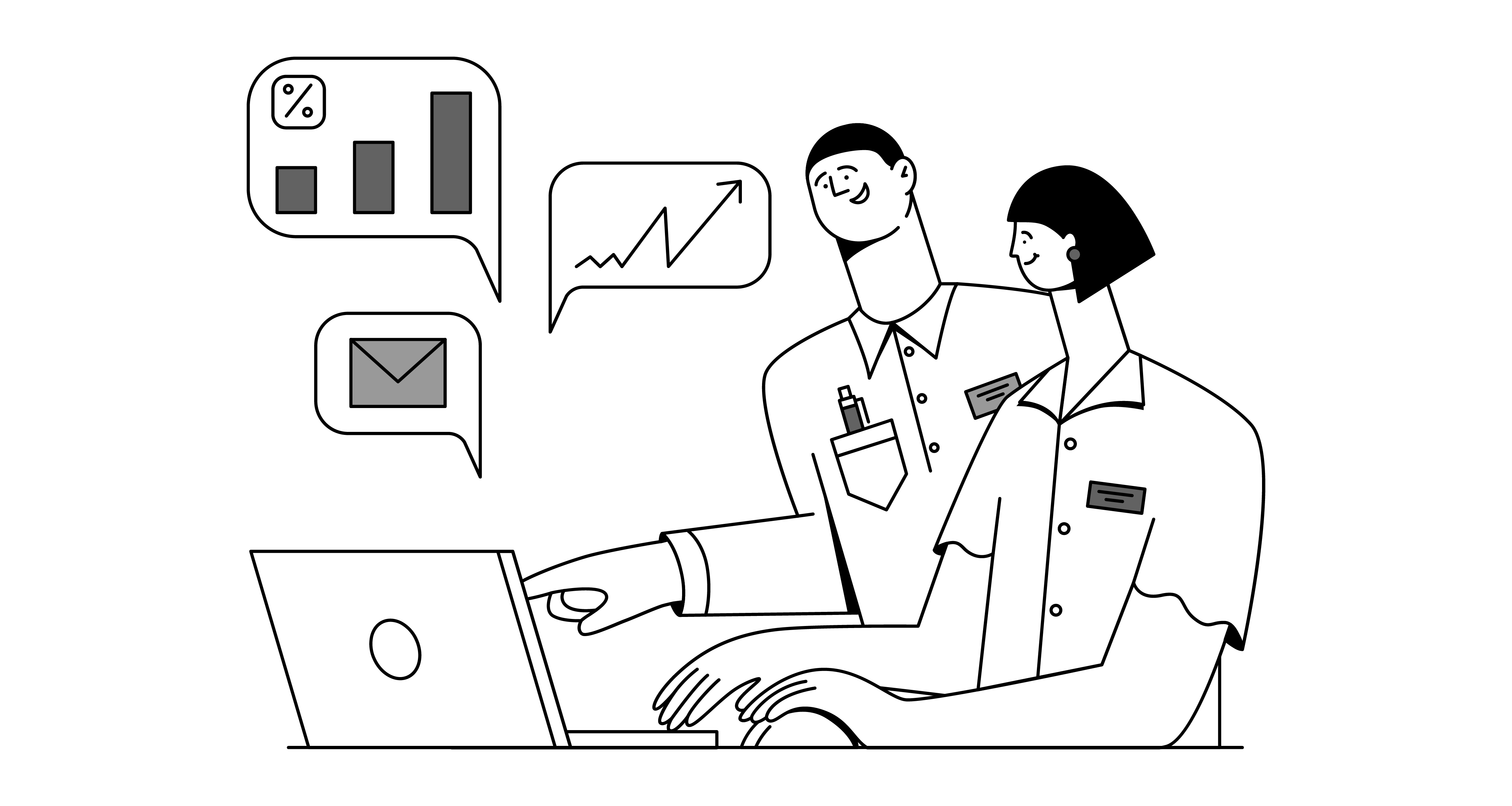4 Years in a Row
Officially awarded Zoho Partner of the Year in Australia for 2022, 2023, 2024 and 2025. Chosen from 60+ Australian Zoho Partners by Zoho themselves.*
First Top-Up Special
$129$99/hr + GSTBook your free video conference with our Zoho Consultants
Get your free comprehensive Zoho rollout quotation
Recognised as Australia’s #1 Zoho Partner, 4 years running
Minimum project size 10 consulting hours.

Do CRMs Actually Prove Their Worth for Businesses?
In the digital age, customer relationships are at the heart of every successful business. Managing these relationships effectively is critical for growth, but many companies still rely on manual processes or disconnected tools. This raises an important question: Are CRMs (Customer Relationship Management systems) actually better than not having one?
To answer this, let’s dive into what a CRM brings to the table and compare it to traditional, non-CRM approaches.

What Happens Without a CRM?
Without a CRM, businesses often rely on manual methods or general-purpose tools like spreadsheets, email platforms, and notepads to manage customer interactions. While these methods can work for very small teams or startups, they come with significant drawbacks as the business grows:
Scattered Customer Data
Information about customers is often stored in multiple places, such as email threads, shared documents, or even individual employees’ devices. This fragmentation leads to inefficiencies and missed opportunities.
Missed Follow-Ups
Without automated reminders or a centralised system, it’s easy for leads to fall through the cracks. Customers expect timely communication, and a lack of follow-up can damage trust.
Inefficient Collaboration
Teams working without a CRM may find it hard to share customer insights or track progress on sales and marketing efforts. This lack of coordination can result in inconsistent messaging and lost opportunities.
Limited Scalability
Managing customer relationships manually becomes increasingly difficult as a business grows. Tracking hundreds or thousands of customers without a central system can lead to errors, delays, and poor customer experiences.
No Actionable Insights
Manual systems rarely provide the analytics businesses need to measure performance, track trends, or make informed decisions. Without data, growth strategies are based on guesswork rather than evidence.
How CRMs Change the Game
CRMs are designed to solve these challenges by offering a centralised platform for managing customer relationships. Here’s why businesses that adopt CRMs often outperform those that don’t:
All-in-One Customer Data
CRMs provide a single source of truth for customer information, including contact details, purchase history, interactions, and preferences. This makes it easy for teams to access and update data in real-time.
Automated Workflows
Tasks like sending follow-up emails, scheduling appointments, or assigning leads can be automated with a CRM. This saves time, reduces errors, and ensures consistency.
Enhanced Lead Tracking
CRMs allow businesses to track leads through every stage of the sales pipeline, ensuring no opportunity is overlooked. Automated reminders prompt timely follow-ups, improving conversion rates.
Actionable Analytics
CRMs provide detailed reports on customer behaviour, sales performance, and campaign effectiveness. These insights help businesses refine their strategies and make data-driven decisions.
Collaboration Across Teams
With a CRM, sales, marketing, and customer service teams can share information seamlessly. This improves alignment and ensures a consistent customer experience.
Scalability and Growth
CRMs are designed to grow with your business. Whether you’re managing 100 or 10,000 customers, a CRM can handle the workload and help you maintain efficiency.
When is a CRM a Must-Have?
While some very small businesses or solo entrepreneurs may manage without a CRM initially, certain signs indicate when a CRM is needed:
- Growing Customer Base: As the number of customers increases, managing data manually becomes unsustainable.
- Missed Opportunities: Frequent delays in follow-ups or lost leads are red flags.
- Difficulty in Tracking Metrics: If it’s hard to measure performance or identify trends, a CRM can provide the necessary insights.
- Scaling Operations: Expanding teams and departments require centralised systems for coordination.
Choosing the Right CRM
Not all CRMs are the same, and the key to success lies in selecting one that fits your business needs. Solutions like Zoho CRM are tailored for businesses of all sizes, offering:
- Easy-to-use interfaces for managing customer data.
- Automation features to handle repetitive tasks.
- Integration capabilities with other tools for seamless workflows.
- Scalable pricing models that grow with your business.
Whether you’re a small business or an enterprise, a CRM like Zoho can help streamline your operations and improve customer relationships.
The Verdict: CRMs vs. No CRM
The evidence is clear: businesses that invest in CRMs consistently outperform those that don’t. While it’s possible to manage customer relationships without a CRM in the early stages, the inefficiencies, missed opportunities, and lack of insights quickly outweigh any initial cost savings. A CRM isn’t just a tool—it’s a foundation for sustainable growth and exceptional customer experiences.
If you’re looking to elevate your customer management processes and scale your business effectively, adopting a CRM is a proven step in the right direction.
Request a Callback from Smartmates

Sarah
I’ll listen to your Zoho needs to understand your business challenges and goals, ensuring a tailored approach.
I’ll bring a certified Zoho engineer to our first consultation to explore solutions and clarify your requirements.
We’ll deliver your free project plan quotation, detailing the steps, timeline, and costs—up to this point, it’s completely free!
“My mission is to solve your key problems, build your trust in our capabilities and deliver exceptional value for money.”
